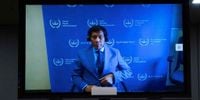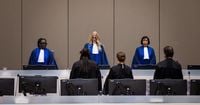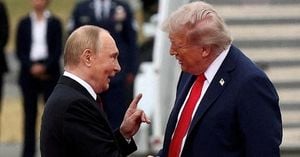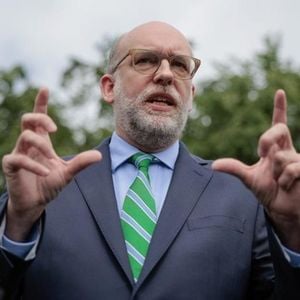On October 10, 2025, judges at the International Criminal Court (ICC) in The Hague delivered a decisive blow to former Philippine President Rodrigo Duterte’s quest for freedom, rejecting his request for interim release from detention. The ruling, outlined in a detailed 23-page decision, underscored the court’s concerns that Duterte—now 80 years old and facing charges of crimes against humanity—remains a flight risk and could use his influence to intimidate witnesses or obstruct justice if granted release.
The decision comes as the latest chapter in the ongoing legal saga surrounding Duterte’s controversial anti-drug campaign, which he launched first as mayor of Davao City and then expanded nationwide during his presidency. According to the ICC, the campaign, often referred to as Oplan Tokhang, resulted in thousands of deaths. Official Philippine police data cites over 6,000 fatalities, while human rights groups claim the true toll could be as high as 30,000—a staggering figure that has drawn international condemnation and led to the current proceedings in The Hague.
The ICC’s rejection of Duterte’s plea was based on three core grounds under the Rome Statute: ensuring his appearance at trial, preventing him from obstructing the investigation or proceedings, and stopping the potential commission of further crimes. The judges pointedly referenced Duterte’s repeated rejection of the court’s authority, noting that both he and his supporters have labeled his arrest as “pure and simple kidnapping.” The court’s ruling highlighted the “necessary political contacts” Duterte still enjoys, suggesting these connections could help him evade justice if released.
Adding to the court’s concerns were the actions and public statements of Duterte’s family, particularly his daughter, Vice President Sara Duterte. In a striking moment cited by the judges, Sara Duterte reportedly mentioned in a July 19, 2025 public speech the idea of breaking her father out of ICC detention, and she has also publicly questioned the legitimacy of the court’s proceedings, alleging collusion with the Philippine government and the use of “fake witnesses.” The Chamber also noted that Duterte’s son, Sebastian Duterte, was elected Vice Mayor of Davao City—one of the locations at the center of the alleged crimes—further fueling fears of witness intimidation or obstruction.
The court’s decision also addressed a key argument put forth by Duterte’s legal team: his advanced age and declining health. Defense counsel Nicholas Kaufman argued that it was “erroneous” to keep “a debilitated and cognitively impaired 80-year-old” in detention, claiming Duterte’s cognitive faculties had deteriorated to the point where he could not assist his lawyers. However, the ICC was not persuaded. The judges called the humanitarian arguments “speculative and without basis,” emphasizing that Duterte’s age and alleged ill health did not outweigh the risks posed by his release. The Chamber wrote, “The chamber considers that the documents do not indicate how Duterte’s alleged physical condition or cognitive impairment negate the risks identified.”
The ICC also dismissed claims that Duterte’s detention was detrimental to his health, noting that he has access to appropriate medical treatment and care within the detention center. According to the court, “Nothing in the request indicates that this would not be sufficient to ensure that Mr. Duterte receives the appropriate medical attention and care in detention.” The judges further observed that the question of fitness to stand trial is legally and factually distinct from the question of interim release, meaning that Duterte’s cognitive status would be assessed separately from the decision about his continued detention.
Another factor weighing heavily in the court’s decision was Duterte’s recent re-election as Mayor of Davao City in the 2025 elections. The Chamber argued that releasing Duterte would place him “in the very position that allowed him to commit the crimes for which his arrest and surrender to the Court was initially sought.” The court even recalled Duterte’s earlier pledge to “double the killings” if re-elected as mayor—a chilling reminder of the violence that marked his previous terms in office. This, combined with the political power still wielded by his family in Davao City, led the judges to conclude that the risk of further crimes and intimidation of witnesses was simply too great to justify interim release.
The ICC’s decision was welcomed by rights groups and families of victims, who hailed it as a significant step toward accountability. In a joint statement, the organizations SENTRO and CATW-AP declared, “The ICC’s ruling reaffirms a simple but powerful truth: no one, not even a former head of state, is above the law.” ICC Chief Prosecutor Karim Khan also called Duterte’s arrest and continued detention “a crucial step in our continuous work to ensure accountability for the victims of the most serious crimes under ICC jurisdiction.”
Despite the court’s clear rationale, Duterte’s legal team has vowed to continue fighting. Nicholas Kaufman, his lead counsel, has already appealed the September 23 decision rejecting interim release, insisting that the court’s refusal to consider “unprecedented State guarantees for a debilitated and cognitively-impaired 80-year-old” is fundamentally flawed. Kaufman maintains that Duterte’s current condition makes it impossible for him to participate meaningfully in his defense, and he has criticized the ICC for keeping Duterte “from the public eye for more than six months.”
The ICC, however, remains unmoved. The Chamber emphasized that the risk factors—Duterte’s political network, his family’s public opposition to the proceedings, and his continued influence in Davao City—far outweigh any humanitarian considerations. The court also pointed out that Duterte’s own statements and actions, as well as those of his supporters, demonstrate a clear intent to reject the legitimacy of the ICC’s authority and, potentially, to evade justice.
Duterte was arrested in Manila on March 11, 2025, upon his return from Hong Kong, following the issuance of a warrant by the ICC. He is currently detained at the Hague Penitentiary Institution, also known as Scheveningen Prison, awaiting trial on charges of murder and attempted murder related to his administration’s war on drugs. The confirmation of charges hearing, originally set for September 23, was postponed pending a full medical assessment of Duterte’s fitness to stand trial.
As the legal process continues, the world watches closely. The ICC’s firm stance signals a willingness to hold even the most powerful to account, regardless of age, health, or political connections. For the families of those lost in the Philippine drug war, the court’s decision offers a measure of hope that justice may yet be served.





